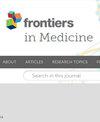Transcultural adaptation and theoretical models validation of the Spanish version of the Self-Care of Diabetes Inventory
IF 3.1
3区 医学
Q1 MEDICINE, GENERAL & INTERNAL
引用次数: 0
Abstract
BackgroundFor patients with diabetes mellitus, self-care is crucial because it prevents complications and helps preserve quality of life. Clinicians and researchers require effective tools for assessing self-care behaviors across various dimensions to identify individual needs and maximize resource allocation. The aim of this study was to evaluate the validity and reliability of the Spanish version of the Self-Care of Diabetes Inventory (SCODI).MethodsTwo hundred eighteen participants with DMT1 and DMT2 who were recruited through convenience sampling from a university hospital participated in our cross-sectional study. After translation and cultural adaptation, the enrolled patients answered the questions. We performed an exploratory factor analysis (EFA) on each of the SCODI scales and Confirmatory factor analysis (CFA) was performed using our models which appropriate fit indices.ResultsThe original structure of the four-dimensions tool was confirmed. The overall consistency across the four scales was assessed by Cronbach’s alpha: self-care maintenance (0.766), self-care monitoring (0.790), self-care management (0.771), and self-care confidence (0.936). The model fit yielded a chi-square index of 1.028 with 773 degrees of freedom. Confirmatory factor analysis showed a good fit, thereby affirming the reliability of the model.ConclusionThe internal consistency and reliability of the SCODI Spanish version are deemed adequate. This tool is appropriate when it is desired to evaluate the self-care practices of Spanish persons suffering from diabetes due to its good psychometric qualities.糖尿病自我护理量表西班牙文版的跨文化调整和理论模型验证
背景对于糖尿病患者来说,自我护理至关重要,因为它可以预防并发症,有助于保持生活质量。临床医生和研究人员需要有效的工具来评估各方面的自我护理行为,以确定个人需求并最大限度地分配资源。本研究的目的是评估西班牙文版糖尿病自我护理量表(SCODI)的有效性和可靠性。方法我们从一所大学医院通过便利抽样招募了 218 名 DMT1 和 DMT2 患者参加横断面研究。经过翻译和文化调整后,入组患者回答了问题。我们对每个 SCODI 量表进行了探索性因子分析(EFA),并使用我们的模型和适当的拟合指数进行了确认性因子分析(CFA)。通过 Cronbach's alpha 评估了四个量表的整体一致性:自我护理维护(0.766)、自我护理监测(0.790)、自我护理管理(0.771)和自我护理信心(0.936)。模型拟合的卡方指数为 1.028,自由度为 773。确认性因子分析显示出良好的拟合效果,从而肯定了模型的可靠性。由于其良好的心理测量质量,该工具适用于评估西班牙糖尿病患者的自我护理方法。
本文章由计算机程序翻译,如有差异,请以英文原文为准。
求助全文
约1分钟内获得全文
求助全文
来源期刊

Frontiers in Medicine
Medicine-General Medicine
CiteScore
5.10
自引率
5.10%
发文量
3710
审稿时长
12 weeks
期刊介绍:
Frontiers in Medicine publishes rigorously peer-reviewed research linking basic research to clinical practice and patient care, as well as translating scientific advances into new therapies and diagnostic tools. Led by an outstanding Editorial Board of international experts, this multidisciplinary open-access journal is at the forefront of disseminating and communicating scientific knowledge and impactful discoveries to researchers, academics, clinicians and the public worldwide.
In addition to papers that provide a link between basic research and clinical practice, a particular emphasis is given to studies that are directly relevant to patient care. In this spirit, the journal publishes the latest research results and medical knowledge that facilitate the translation of scientific advances into new therapies or diagnostic tools. The full listing of the Specialty Sections represented by Frontiers in Medicine is as listed below. As well as the established medical disciplines, Frontiers in Medicine is launching new sections that together will facilitate
- the use of patient-reported outcomes under real world conditions
- the exploitation of big data and the use of novel information and communication tools in the assessment of new medicines
- the scientific bases for guidelines and decisions from regulatory authorities
- access to medicinal products and medical devices worldwide
- addressing the grand health challenges around the world
 求助内容:
求助内容: 应助结果提醒方式:
应助结果提醒方式:


